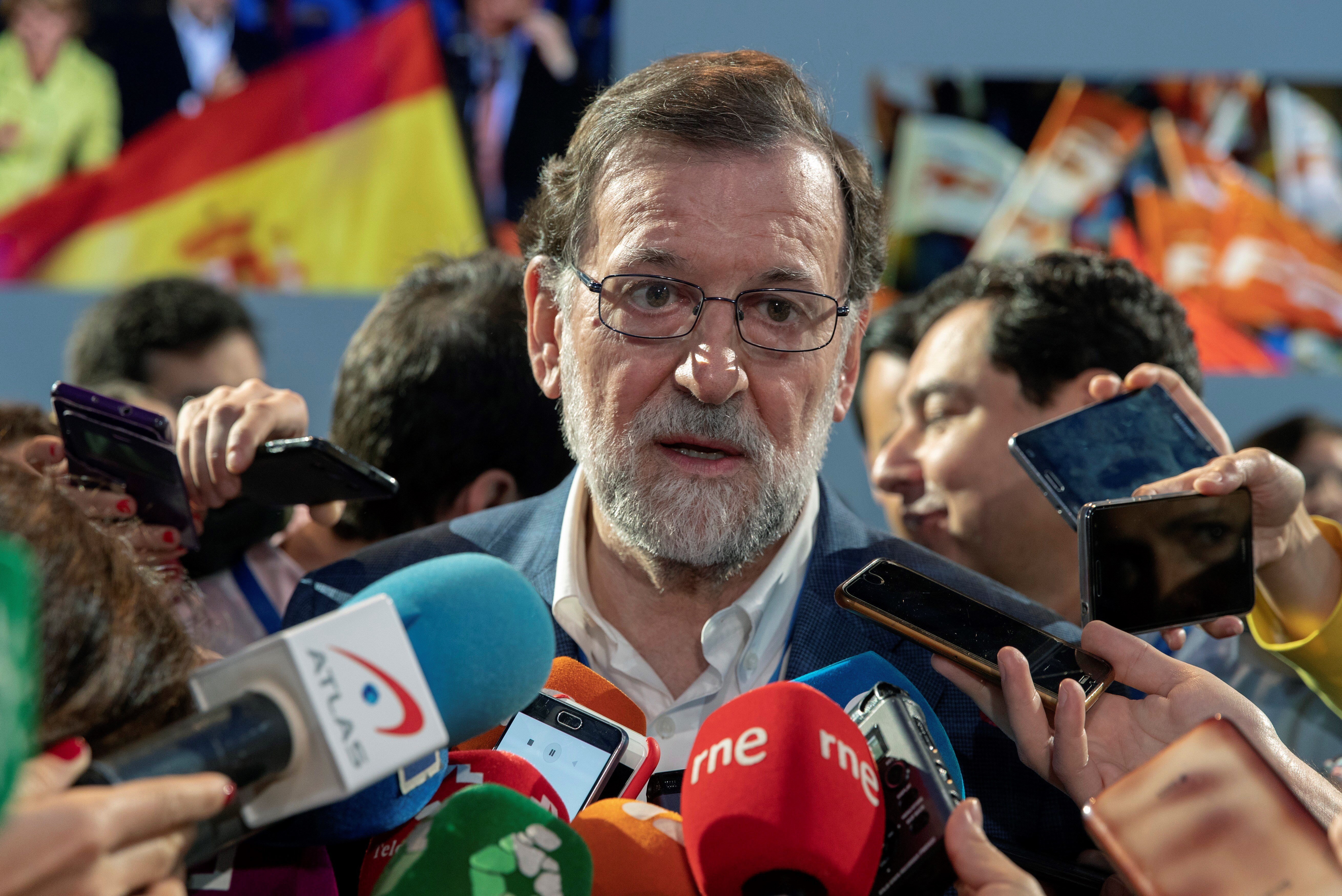The release of Catalan leader Carles Puigdemont from custody after a decision by the German justice system has dealt a blow to Spain's Supreme Court, at the same time as it has sown seeds of uncertainty in the Spanish executive about whether Germany might end up also saying no to extradition of the exiled Catalan president on the other charge being considered, misappropriation of public funds. "It will not be easy", warned Germany's justice minister Katarina Barley, noting that if this offence were not proved, Puigdemont would be "a free man in a free country" - that is, Germany. The comment has not only brought the Spanish government to the edge of an institutional collision with the government of Angela Merkel, but has alerted it to the need to muffle the possible effects of an adverse outcome.
"He will be a fugitive from justice for the rest of his life", was the response from close collaborators of Spanish prime minister Mariano Rajoy, consulted by this newspaper during the annual conference of the Popular Party (PP) underway this weekend in Seville. No-one wants to speculate on what will happen if the handover of Puigdemont is denied, but there is an attitude of acceptance towards a hypothetical situation in which the Catalan, unable to be extradited, would at the same time not be able to come back to Spain. This could be the case because, if he were to set foot on Spanish territory, he would be immediately arrested and tried for rebellion and misappropriation, the charges that he faces in the Supreme Court indictment issued by judge Pablo Llarena.
PP sources believe that the German court would have given a different ruling if the extradition claim had been made by France or the UK; minister Dastis warns about the effects on "trust" in EU institutions
This positioning, however, already constitutes a change in the Spanish executive's expectations for the decisions of the Schlewig-Holstein judges. Scarcely ten days ago, Spanish justice minister Rafael Catalá gave the assurance that the only hypothesis the cabinet was working with was extradition, since it would be the "logical" consequence of the European Union's judicial coordination. Spanish government spokesperson Íñigo Méndez de Vigo had also said the same thing previously, when he affirmed that the German offence of high treason and the Spanish penal code's offence of rebellion were "equivalent" crimes, and that the essence of the European arrest warrant was confidence between judges.
With this background, the discontent with the criteria adopted by the German judges in rejecting the rebellion charge aroused strong feelings in the Spanish government and the PP, leading them to revive the narrative of Puigdemont as a "fugitive", able to travel round Europe, while in Spain part of his Catalan government is in prison. Spanish vice president Soraya Sáenz de Santamaría said as much on Friday in responding to the news of Puigdemont's release: "He is a fugitive, entirely without merits", she denounced. However, Santamaría did deliver a new warning: "This is a battle and sometimes it seems that they have won, but we will win", said the Spanish deputy leader.
Portugal's Paulo Rangel warned Spain's PP about the lack of a narrative: "It is very important, in Europe and in the world, to explain the political question: that this country is free and people can live in harmony", he said
The fact is that the central government has not lost faith in the scenario that some opening will be found to enable the Catalan leader to be handed over to Spain. Spokesperson De Vigo recalled during a Friday press conference that the process of extradition was not over. "We'll see how it finishes, there are different phases. You can't make assumptions, we'll wait for the end result without speculating", he said, in a call for a prudent approach. Nevertheless, the Supreme Court and the Public Prosecutor have taken a first step to secure the return of the exiled president: they are examining the possibility of appealing the German decision to the Court of Justice of the European Union (CJEU).
In the face of the German decision, some critics are voicing opinions on why the court of Schlewig-Holstein has discredited the 'violence' narrative in just two days, a fact that the Spanish leadership believes could have implications for "trust" in EU institutions, as Spanish foreign minister Alfonso Dastis has asserted. Sources in the PP doubt that German justice would have made a similar pronouncement in a case involving France or the United Kingdom. They think that in Germany there are people who still see the Spanish state as that "village" where they go to "spend their summer holidays".
But if there is one voice which stood out from the crowd in the PP's response to the news, it was that of the Portuguese Paulo Rangel, vice president of the European Popular Group. In the conference session entitled "Spain, a great country", moderated by Catalan PP representative Andrea Levy, and also including deputy PM Santamaría, and Spanish ministers De Vigo and Íñigo de la Serna, Rangel warned about Spain's lack of an international narrative in opposition to the communicative internationalization of the independence process. "It is very important to Europe and to the world to explain the political question: that this country is free and people can live in harmony, that it is good that we all are integrated together in Spain's autonomous communities", he pointed out.

